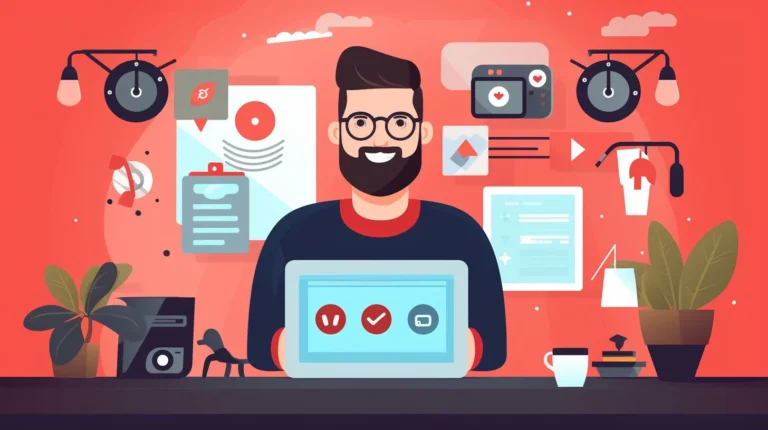Make Money with Foreign Exchange Trading

Feeling a bit muddled while trying to broaden your wealth horizon? Trust me, you’re not alone. I can resonate with your struggle as an investor and researcher navigating through the murkiness of foreign exchange trading.
But let me tell you this – my journey has taught me that forex trading packs some serious potential for bumper profit gains if only we take time to unravel its mysteries. In this blog post, think of us as fellow travelers exploring the course on how to make money through Forex trading – decoding it all from picking up a trustworthy broker right down to acing market analysis.
Are you ready to turn those question marks into dollar signs? Let’s unwrapping together!
Key Takeaways
- Forex trading is the buying and selling of money from different countries. This happens in a place called the global foreign exchange market.
- There are good things and hard things about forex trading. Still, any person can make money if they study it enough and practice being careful with risks.
- Types of forex markets include spot, forward, and futures markets. Spot means you trade now; forward lets you set price for later; futures let you buy or sell at future date using standard contracts.
- Central banks control money supply which can change values of currency pairs. News reports on economy also move prices up or down fast.
- In forex trading, leverage helps us own more currencies by lending some while margin holds our open trades until we close them out.
- While learning to trade in the demo account, act like there’s real cash at stake to grasp underlying concepts better.
Unveiling Forex Trading
Forex trading, also known as foreign exchange trading, is a global marketplace where individuals trade currencies. Deemed to be the largest financial market worldwide, it operates 24/7 and offers various profit opportunities due to its high liquidity and huge trading volume.
However, along with undeniable prospects come considerable risks – currency rate fluctuations can potentially lead to significant losses if not managed correctly or taken lightly by beginners.
The key takeaway? It’s crucial for newbie traders to perceive the ins-and-outs of Forex before delving into trades actively.
What is Forex Trading?

Forex trading is a way to make money. It happens in a place called the global foreign exchange market. Here, people buy and sell money from different countries. In forex trading, you buy one type of currency while selling another at the same time.
This usually takes form as ‘currency pairs.’ Do you know what makes the price change? It’s all about how much buyers are willing to pay for it and how much sellers want for it! By guessing correctly on whether a currency’s worth will go up or down against another, traders can make profit!
Pros and Cons of Forex Trading
Forex trading presents a lot of opportunities, but also comes with certain challenges. Here’s a simple table that summarizes the main pros and cons of forex trading:
| Pros | Cons |
|---|---|
| The forex market operates 24 hours a day, providing flexibility for traders. | The forex market can be extremely volatile, leading to potential losses. |
| Forex trading is influenced by global economic factors, offering diverse trading opportunities. | Without proper understanding and strategy, it’s easy to make mistakes in forex trading. |
| Traders can generate profits through market analysis and leverage. | Use of leverage can amplify losses as well as profits. |
| Understanding currency pairs, pips, spread, and lots is necessary and can be beneficial for forex trading. | Choosing a reputable forex broker is crucial for fund security and to avoid scams, which can be challenging for beginners. |
Remember that success in forex trading involves learning, patience, and an understanding of the market dynamics.
Understanding Forex Market
In an endeavor to delve into Forex trading, gaining profound insights into the working of the Forex market is imperative. The Forex market encompasses diverse types including Spot Market, Forward Market, and Futures Market – each with its unique characteristics.
Central Banks play a pivotal role in manipulating exchange rates based on economic indicators and financial stability goals. Moreover, sentiments expressed via news reports also significantly sway the ebb and flow of currency value in this vibrant global marketplace.
Types of Forex Market
Let me share about types of forex market. First, we have the spot market. It’s where currencies are bought and sold at right now prices. This is the most popular and fluid kind of forex market. Then there’s the forward market. Here, traders lock in a rate for a future date. It helps protect them from shifts in currency value. Lastly, there’s the futures market. This one operates on trading platforms. Standard contracts are traded for a set future date here.
Role of Central Banks, News Reports, and Market Sentiment
Central banks play a big role in forex trading. They control money supply and set interest rates. This can change the value of a currency. News reports also have strong effects on currencies.
Reports on things like the gross domestic product or unemployment rate can make exchange rates go up or down quick. Market sentiment is another key part that impacts forex market trends.
This shows how traders feel about certain currencies or the whole forex market itself. These feelings might be because of news, trends, economic signals or just common views among traders themselves.
Basic Forex Trading Terms
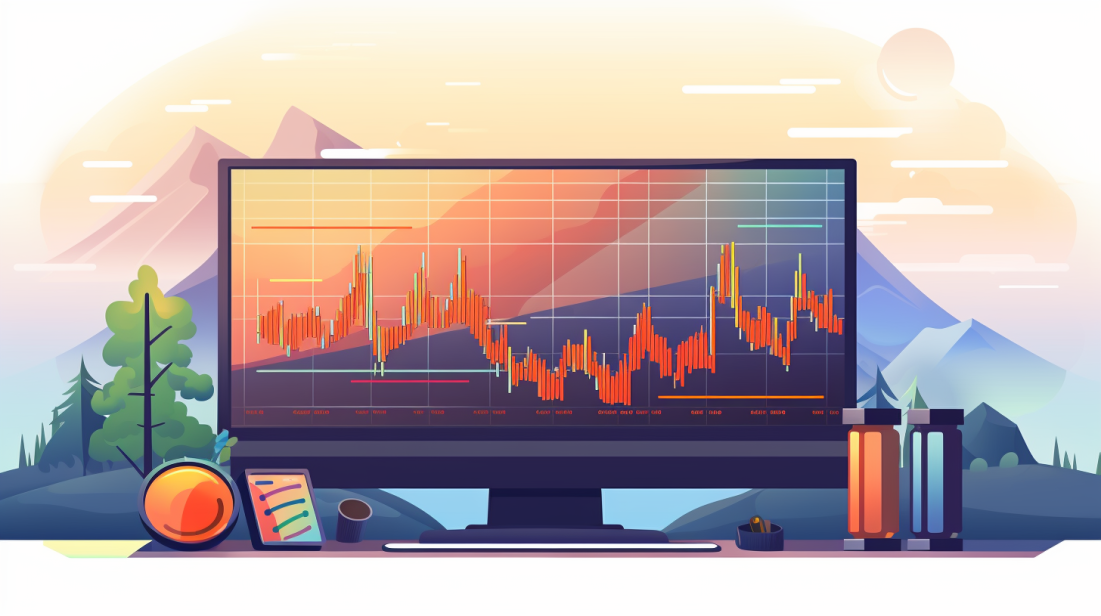
As we delve into the world of Forex Trading, let’s explore some key terms. You’ll hear about base and quote currency often – these refer to the two currencies in your trade. Leverage allows traders like us to control larger total trade sizes with a smaller investment.
Remember margin? That’s the amount you need to open a new position. Then there are pips and spreads, which measure gains or losses and specify selling price difference respectively.
Lastly, ‘lots’ denote the size of your trades – each one representing 100,000 units of base currency! So let’s buckle up for this fascinating journey where little goes a long way!
Base and Quote Currency
In Forex trading, two kinds of currency pair up. The first one is the base currency and the second one is the quote currency. An exchange rate can show how much a unit of base currency costs in terms of quote currency.
For example, if you see EUR/USD at 1.1200, this means 1 Euro (the base) costs 1.12 U.S dollars (the quote). To make money, traders look for changes in these rates before they trade currencies.
Leverage and Margin
In forex trading, I use leverage and margin. Let me tell you how it works. Think of leverage like a friend who lends me money. Leverage lets me control big trade amounts with just a small pile of cash in my pocket.
This boosts my possible gains but also increases the chance for losses.
Now, what about margin? Picture the mortgage on your home—similar to that is margin in Forex Trading! It’s not something I pay up front. Margin is more like security or collateral needed to hold open trades using leverage.
So two words: Be careful! Using too much leverage can lead to big losses very fast if things go south on even one trade!
Pips and Spreads
Pips and Spreads are very important in forex trading. They tell us about the changes in the value of currency pairs. Pips keep track of these changes. Traders use them to see if they have made a gain or loss.
For example, if EUR/USD moves from 1.1850 to 1.1851, that is a one pip increase.
Spreads on the other hand are like fees charged by brokers for trades made. It’s really just the difference between what you can buy a currency pair for (bid price), and what you can sell it for (ask price).
So, low spreads mean less costs which is better for you as a trader! One more thing – spreads can change based on how busy the market is at any time.
Lots in Forex Trading
In forex trading, we use ‘lots’ for the size of our trades. It is how much currency you’re buying or selling at one time. You call it a standard lot if you trade 100,000 units of the base money.
This is what most traders do.
But not all people want to deal with that much cash! People can choose something called mini lots and micro lots too. Mini ones are ten times less than a standard lot – so only 10,000 units instead of 100,000.
Micro ones are even smaller again – just 1,000 units at a time! The size changes how much profit or loss we can make from every little move in price.
How to Start Forex Trading
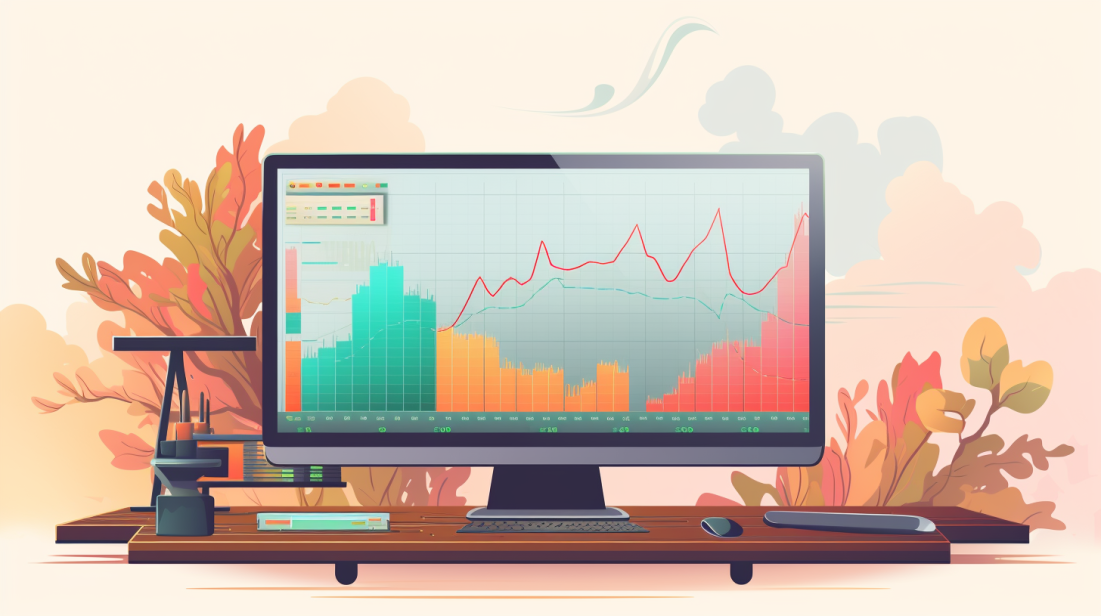
Diving into the world of Forex trading involves choosing a trusted broker, setting up a demo account to get your feet wet, and making that all-important initial investment. Curious about taking this bold step? Stay with us as we guide you through each process.
Choosing a Reputable Forex Broker
You need a good forex broker for safe trading. They help you lower risks and stop scams. To pick one, look if they follow rules set by financial groups like the Commodity Futures Trading Commission.
Also, see if their fees are fair and how they handle your money. Last, check out their platform to make sure it is easy to use.
Creating a Demo Account
First, find a good forex broker. They will give you a demo account. This is like practice for the real thing but it’s all pretend so there’s no risk. You get to know how to use their trading app or website and learn about the market of different money from around the world.
It’s just like having real money in your hand, only it’s not! It lets you make fake trades to see what would happen without spending any real cash. The trick with this demo account is to act like it has actual money on it and take every decision seriously – then you’ll really learn stuff! Check out charts and trends and try your hand at making some exchanges – no need to worry, these are ‘pretend’ turns so even if something goes wrong here, no harm done!
Making the Initial Investment
Before you trade real money, check that your broker uses controlled risk levels. They help to limit how much money you can lose. Start with a small amount of cash first – any sum that won’t hurt if it’s lost is fine.
You’ve got to get used to making quick moves in the market.
It also means not putting all your funds into one deal. Protecting your money is important because you want to keep on trading even after minor setbacks. Even top forex traders face losses at times! So, tread carefully and make safe choices from the start.
Strategies for Successful Forex Trading
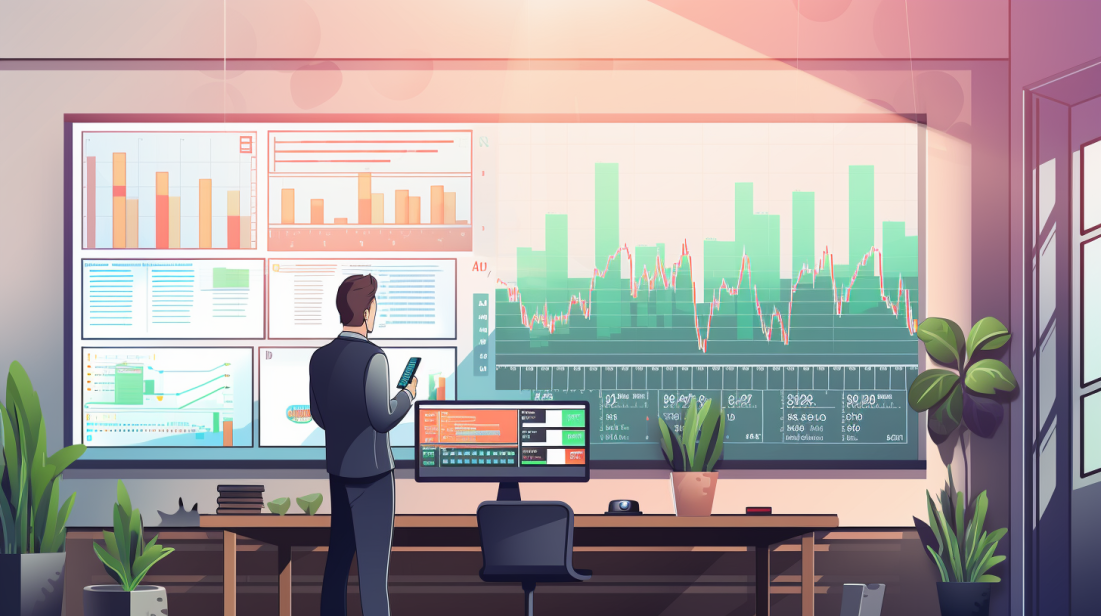
Navigating the forex market successfully requires strategic planning and a deep understanding of the currency pairs you’re trading. It’s essential to analyze charts meticulously in order to open a position effectively.
Remember, risk management is your best friend; it protects your capital from significant losses. Knowing when precisely to close a trade can spell the difference between potential gains or drastic financial downfalls in this volatile market landscape.
With time, effort, and consistently wise decisions, mastering forex trading strategies will eventually generate substantial profits.
Selecting a Currency Pair
One key step in forex trading is picking the right currency pair. Think of it like choosing a car to race. Some are fast but risky, while others are slow but safe. Each has pros and cons depending on the trader’s style and goals.
The most common types include U.S Dollar against Euro (EUR/USD), British Pound (GBP/USD), or Japanese Yen (USD/JPY). These pairs usually have lots of trades which makes prices move up and down often – this could mean more opportunities to make money! Remember the direction you think their price will go determines whether to open a long position for profit with an increase, or short position if expecting a decrease.
Analyzing the Chart and Opening a Position
Let’s talk about analyzing a chart and starting a trade in the Forex market.
- The first thing to do is pick the right chart. In Forex trading, the most common types are line charts, bar charts, and candlestick charts.
- Next is analyzing the price of the currency pair on your chosen chart. You need to watch for patterns. This might tell you when it’s good to buy or sell.
- At this point, you should choose either buying or selling based on your analysis.
- Then you set your trade size.
- Lastly, press enter to start your trade!
Risk Management
I place a lot of focus on risk management in Forex trading. I see it as the key to staying in the game and making good trades. One effective tool is a stop-loss order. By using this, you limit your loss if things don’t go well.
You tell your reputable forex broker to stop your trade if the price drops too low.
Risking just a small amount of what you have each time will also help keep losses down. Even losing ten or twenty times in a row won’t wipe you out if each loss is small enough! To avoid that, start with little money only and raise slowly after getting certain victories from trading.
Closing a Trade
I use take-profit orders to close a trade. It’s one way I lock in profits when my profit goal is met. This helps me not lose money if the market turns after reaching my goal. But it’s not just about making gains, I also think about losses.
If the risk starts to outweigh possible rewards, it might be time for me to back out too!
Tips for Maximizing Forex Trades
Discover smart strategies to maximize your forex trades, from comprehensive market analysis to insightful trading journals, and experience the potential for a lucrative return on investment.
Stay tuned to learn more about these tried-and-true methods.
Learning the Art of Forex Trading
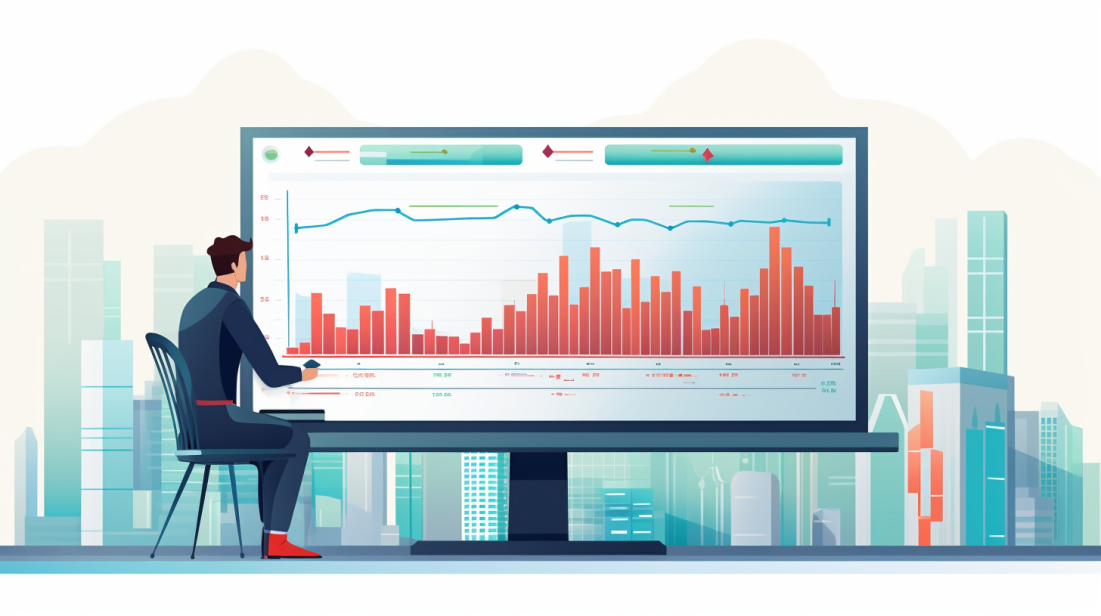
Forex trading is like a skill. It takes time and practice to get it right. We start by learning the basics, then use that knowledge to make trades. We also study charts and trends in the market.
This helps us learn when to buy or sell a currency pair for profit. Mistakes are part of learning too, but we try not to lose much money from them. That’s why using demo accounts at first can be helpful! Over time, as our skills grow, so do potential profits become larger!
Keeping a Trading Journal
A trading journal is your best friend in taking control of Forex trades. It’s a place for you to log each trade, including its date and time, the currency pair traded, and prices at both entry and exit points.
But there’s more! Also jot down why you made that specific trade. This data helps track, analyze and fine-tune your strategies.
Studying this record on a regular basis will show patterns or weak spots in how you trade. If things went south last time when trading EUR/USD under similar market conditions, it signals caution for next time around.
With these details right in front of your eyes, it becomes easier to avoid past mistakes and up your game for better profits!
Can Podcast Sponsorships Be a Good Source of Income Like Foreign Exchange Trading?
Podcast sponsorships for making money can indeed be a lucrative source of income, much like foreign exchange trading. With the rising popularity of podcasts, brands are willing to invest in sponsorship opportunities to reach a targeted audience. This form of passive income allows hosts to monetize their content while bringing value to their listeners through relevant sponsorships. However, success depends on factors like niche, audience size, and engagement levels.
Frequently Asked Questions
Dip into our FAQ section where we tackle the most common queries like ‘How long does it take to learn forex?’ and ‘Is forex a good way to make money?’ plus more, accompanying you every step of your Forex trading journey.
Keep reading; there’s so much more in store!
How long does it take to learn forex?
Learning forex is not a race, but a journey. It may take some months or even years to become skillful in it. This depends on your ability and time to grasp new facts, skills, and trading strategies quickly.
Then apply them in the market. Some people catch on faster than others due to their background in financial markets. Becoming great at technical analysis can help speed this up too! But remember, swift learning isn’t always the best path for long-term success.
Forex takes patience and constant practice! So don’t rush things just yet.
Is forex a good way to make money?
Yes, forex can be a good way to make money. But it’s not easy and takes skills. Some people earn big profits in the foreign exchange market. They look at changes in things like price rates for two currencies (also known as currency pairs).
These traders use ways called leverage and market analysis to help them make money from their trades. Yet, how much a person earns depends on some other things too. One must know about the market conditions up close, have talent for trading and follow strategies that lower risks while trading forex.
How much do forex traders make a day?

Money made by forex traders each day is not the same. Many things can change how much money a trader makes. The way they trade, their skill level, how long they have traded for, and what the market does all play a part.
Some traders might lose money one day but then make lots of money the next.
It is tough to pin down an exact number for all forex traders’ daily earnings. But experienced ones know when to buy and sell at just the right time with popular pairs like EUR/USD or USD/JPY.
So it’s possible for them to earn well if they do smart trades while accepting risks of loss in this high-action market.
Conclusion
Forex trading can open doors to new income. It is a way anybody can make money if they study and work hard. Just remember, it’s not just about making trades. You also have to manage risks and learn from your choices to get better!
FAQs
1. What is foreign exchange trading?
Foreign exchange trading, or forex, is about buying and selling currency pairs. It involves dealing spreads, major currency pairs like U.S dollar and European Euro, leverage trades and more.
2. How do I start making money with Forex Trading?
To make profits in Forex trading, you require a margin account for trading capital investment. You should then use both technical indicators and fundamental factors to decide on your trade direction.
3. Can you control loss in Foreign Exchange Trading?
Yes! Traders can limit their losses by using stop-loss orders during times of market volatility. Reviewing your brokerage’s regulations on slippage helps too!
4. Is it crucial to understand various aspects of the forex market?
Knowing basic forex principles such as how inflation rates impact prices or understanding macroeconomic conditions can guide your decisions about risk tolerance which in turn affects your annual returns.
5.Do I need any special tools for this type of online trading?
You certainly do! Trading software solutions are important assets that aid traders monitor price differences among brokers while being aware of arbitrage opportunities at all times.
6.What kind distinguish a newbie trader from an experienced one?
Apart from years spent trading currencies; taking up active trader programs which includes modules covering advanced techniques across realistic simulators plus real practice accounts may set them apart.





